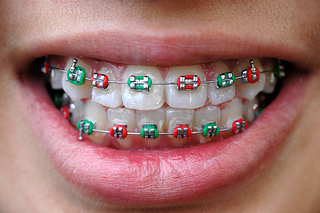How NOT to Forget Your Retainer
January 10th, 2022

The alarm sounds in the morning, you wake up and realize "I forgot to wear my retainer!"
If this only happened once, don't panic. Missing one night with a retainer is unlikely to cause significant teeth movement. However, if it has happened often, give our Ambler or Glenside office a call to make sure your teeth haven’t shifted position.
Here are some tips from Dr. Benjamin Azizi to help you remember your retainer:
1. Write down the instructions we give you for wearing the retainer, whether you should wear it all day or at night, or just a few times a week. Writing things out like this helps set the schedule in your memory.
2. Clean the retainer when you take it out each time. If you don’t you may not have time when you’re rushing to get to work or school to clean it properly and may be tempted not to wear it.
3. Put a note on your mirror or in your purse or wallet reminding you to wear your retainer.
4. Set an alarm on your mobile phone to remind you when it’s time to put the retainer in. If you have email with a calendar you can set up daily reminders, too.
5. Always put the retainer in its case when you take it out to eat or sleep. You’ll reduce your risk for losing it or accidentally throwing it away.
6. If you don’t have to wear the retainer every day, you can use some recurring events to help you remember. With this system for example, watching your favorite weekly TV show, laundry day, or family pizza night can all serve as reminders that you should put in your retainer.
7. Don’t be shy about asking for help if you’re forgetful. Assure your spouse, parents, siblings, or roommates that you won’t consider if nagging if they remind you to wear your retainer.
8. Surf online for examples of how teeth can shift when retainers are not properly used. Those stories can serve as timely warning not to let the same thing happen to you!
Remember, you can always call our Ambler or Glenside office if you feel your retainer is uncomfortable or painful. We'll work with you to protect your smile!






